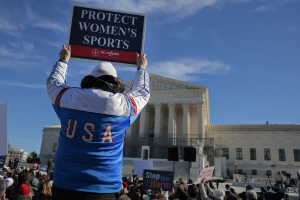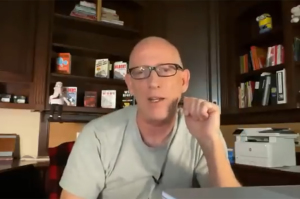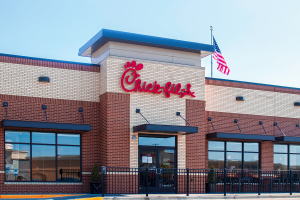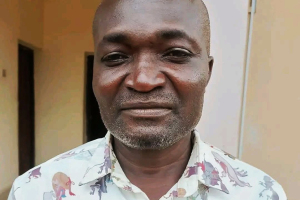Too many American Christians worship 'lesser gods' when engaging in politics, Democratic activist says
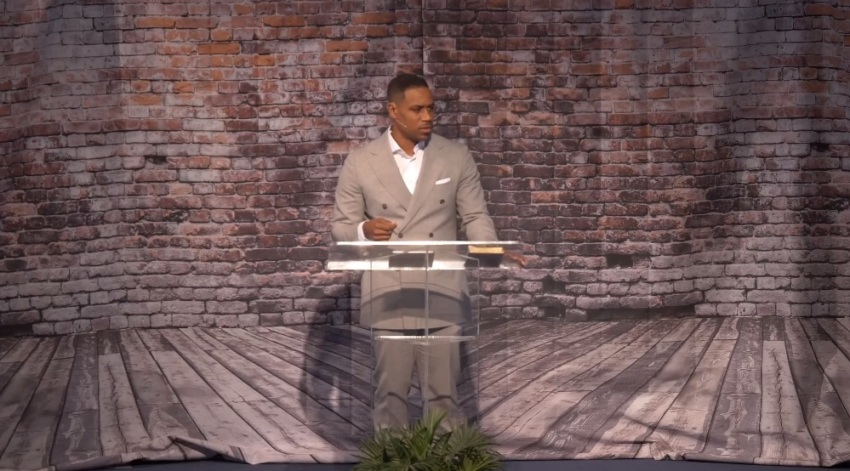
A Democratic political strategist has warned that all too often Christians end up worshiping “lesser gods” when they're involved in politics.
Justin Giboney, an attorney who's also president of the AND Campaign, spoke at the Just Gospel 2020 conference at Del Ray Baptist Church in Alexandria, Virginia, last week.
Giboney said that when it comes to politics, while “Christians should be shining like the North Star in the dead of night,” too many “sound like generic Republicans or generic Democrats.”
“Our faith is not evident in our tactics, in our posture, or in our rhetorical devices,” said Giboney. “Let’s be serious, our politics isn’t winning over any converts.”
He said that many American Christians involved in politics have shown that they have “become converts to lesser gods and lesser institutions,” with Christians “discipling backwards.”
“We have evangelicals using terms like ‘patriotism’ to silence pleas for injustice. Even worse, we have some folks using the Gospel as a reason not to do justice,” continued Giboney.
“Then we have some Christians who rightly concern themselves with justice, but aren’t bold enough to speak on the necessity of obedience and personal transformation along with liberation.”
Giboney felt that “many Christians have placed their trust in methods and ideologies that are built on a foundation that’s certain to collapse.”
“We’ve placed our faith in the tenets of conservatism or the forecast of progressivism,” he added. “We’ve outsourced our public witness to secular commentators and think-tanks that now do the thinking for us.”
“Christians have separated our faith from our politics and we’ve allowed our political affiliations to become religious in nature, liturgical in display.”
Giboney believes Christians in the public square must advocate for both justice and “moral order,” arguing that conservative and liberal ideologies have failed to sufficiently lobby for both.
He cited as a positive example Catholic social activist Dorothy Day, who advocated against war and on behalf of impoverished Americans while opposing abortion and the sexual revolution.
Giboney also warned against Christians engaging in “brain-dead politics,” noting that Christians involved in politics “should critique both parties.”
“You can be in a party and not approach politics as a partisan. To refuse to approach an issue along partisan lines doesn’t mean you are necessarily playing the fence,” he explained.
“It could mean that you’re being decisive on your own terms. It could mean that you understand that that Democrat rock is not our rock. That that Republican rock is not our rock. A prophetic witness won’t conform to the current partisan frameworks.”
Giboney’s remarks came as part of the Just Gospel conference, held March 5-7, which seeks to help American Christians better engage politics.
“We hope to model how Christians who differ in secondary and political matters can nevertheless do so charitably and in a way that preserves both unity and freedom of conscience,” the conference website said. “We need and want healing conversations that serve the Church. We need pilgrim politics that bear witness to Christ and Kingdom to which we are headed.”
In 2018, Andrew Sullivan, author and columnist with New York Magazine, wrote a piece arguing that politics was filling the “need for meaning” found with increased secularization.
“The need for meaning hasn’t gone away, but without Christianity, this yearning looks to politics for satisfaction. And religious impulses, once anchored in and tamed by Christianity, find expression in various political cults,” wrote Sullivan at the time.
Sullivan believed that these political cults “threaten liberal democracy” because of their rejection of compromise, doubt, reason, and the “primacy of the individual.”















